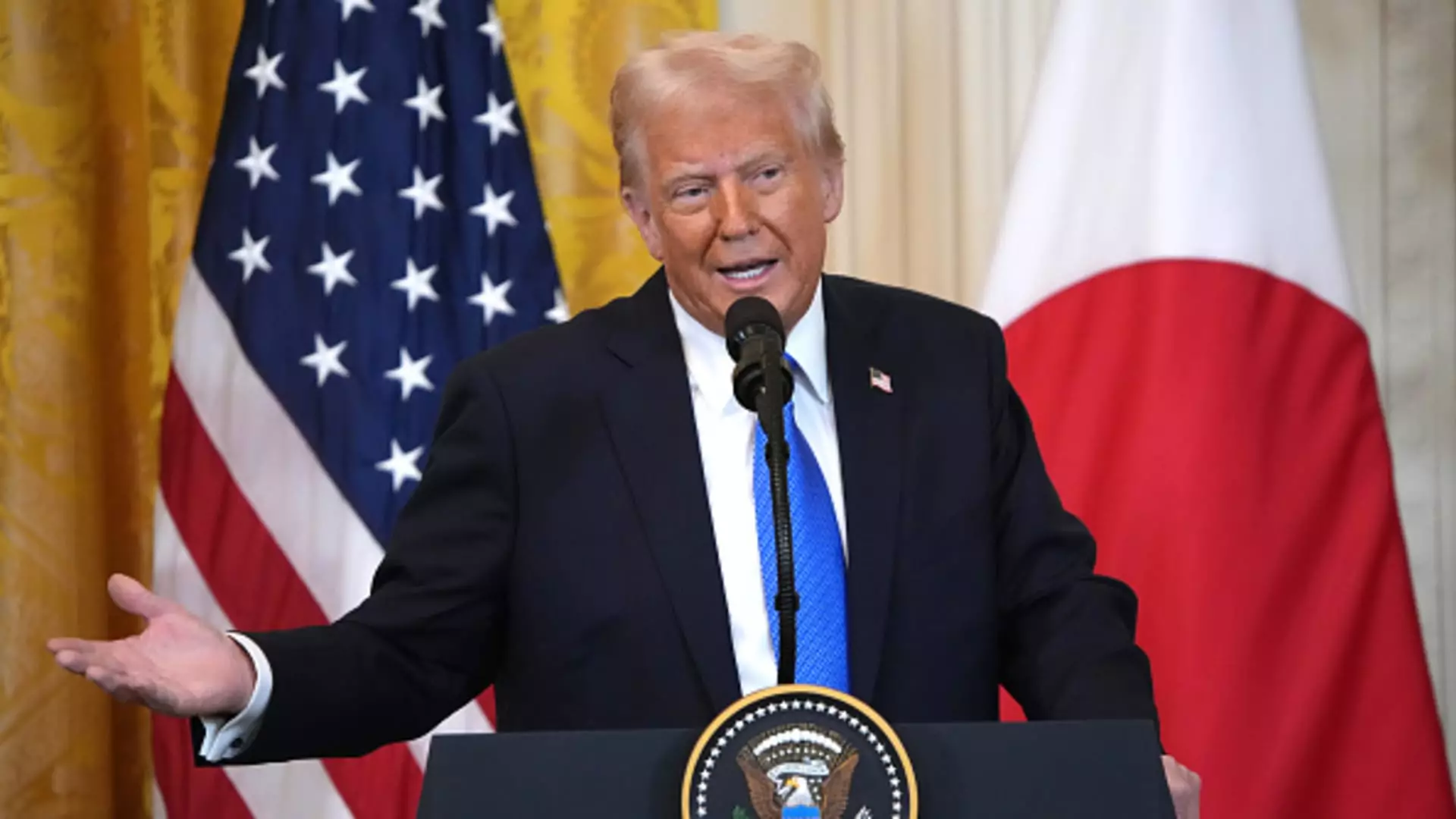Ultimately, the recent “massive” trade deal between the United States and Japan reveals more about political bravado than genuine economic benefit. President Trump’s claims of a historic agreement meant to revitalize industries and generate Jobs are alarmingly superficial. The reality is that such deals—laden with reciprocal tariffs and strategic investments—serve political narratives more than they address the complex needs of sustainable economic development. Rhetoric around “saving” jobs or attracting $550 billion in investments often masks the underlying fragility of global supply chains and the risks of over-reliance on particular sectors. While headlines trumpet a triumph, the substantive question remains: are these negotiations truly advantageous for everyday Americans, or are they politically expedient maneuvers that benefit corporate interests at the expense of fair economic stability?
Tariffs as Political Fodder, Not Economic Solution
The reduction of auto tariffs from 25% to 15% appears promised as a monumental success, yet it is ultimately a Band-Aid on the broader issues of trade imbalance and dependency. Japanese auto exports account for roughly 28% of their shipments—meaning any tariff adjustments will directly impact the sector but do little to challenge the structural nature of globalized auto manufacturing. Importantly, the drop in exports by Japanese automakers to the U.S. in recent months demonstrates how fragile this relationship remains. If the deal’s main achievement is to limit auto tariffs, then what’s truly transformative? Perhaps only a temporary political appeasement that glosses over the underlying economic vulnerabilities and insipid negotiations on broader trade reforms. It’s worth questioning whether such deals are motivated by genuine mutual benefit or are subtle power plays aimed at securing domestic political gains for leaders on both sides.
Blinding Loyalty to Flags Over Real Economic Justice
Another layer to consider is how such agreements influence the delicate balance of power among nations. Japan’s Prime Minister Shigeru Ishiba’s seemingly knee-jerk celebration—calling it “#Mission Accomplished”—exposes a short-sighted nationalistic mindset that often dismisses the complex, slow-moving realities of the global economy. The apparent celebration of a deal that could bolster Ishiba’s leadership amid domestic political instability suggests a growing tendency for leadership to prioritize short-term optics over long-term reforms. It’s an unfortunate reflection of how national sovereignty and economic justice can be sacrificed on the altar of strategic diplomacy, often favoring corporate giants like Honda, Toyota, and Nissan rather than the everyday worker. The benefits touted—potentially creating “Hundreds of Thousands of Jobs”—must be examined skeptically: who really gains from such temporary promises? While markets reacted positively, the broad economic health of workers and small businesses remains uncertain, as precariousness often accompanies these high-stakes negotiations.
The Illusion of Victory in the Global Power Struggle
Adding complexity is Trump’s assertion of additional “deals” in natural gas and Europe, which seem more like political stunts than tangible policy outcomes. These negotiations are reminiscent of a reality show: flashy announcements aimed at bolstering domestic political support but lacking substantive, enforceable change. Moreover, the timing is suspicious—these agreements come at moments of political vulnerability, especially for Japanese Prime Minister Ishiba, whose leadership is teetering amid election losses and internal party pressures. This transactional nature dilutes the true potential for fair, balanced trade policies that prioritize workers’ rights, environmental sustainability, and economic equality. Instead, what we witness is a spectacle of power consolidation, where the rhetoric of “winning” is mostly a façade that distracts from deeper structural issues.
While headlines herald this deal as one of the largest ever, careful scrutiny reveals it as a carefully constructed illusion—one built on temporary concessions and strategic positioning rather than meaningful economic reform. The focus should shift from superficial triumphs to fostering fairer, more resilient trade systems grounded in mutual benefit and social justice. Leadership that seeks to manipulate public sentiment with grandiose declarations must be held accountable, lest the real winners of these deals be multinational corporations and political elites, leaving workers and small businesses to face the aftermath. Stability and fair growth demand more than fleeting diplomatic gestures; they require robust, transparent policies that prioritize the well-being of all communities, not just the interests of geopolitically motivated players.


Leave a Reply